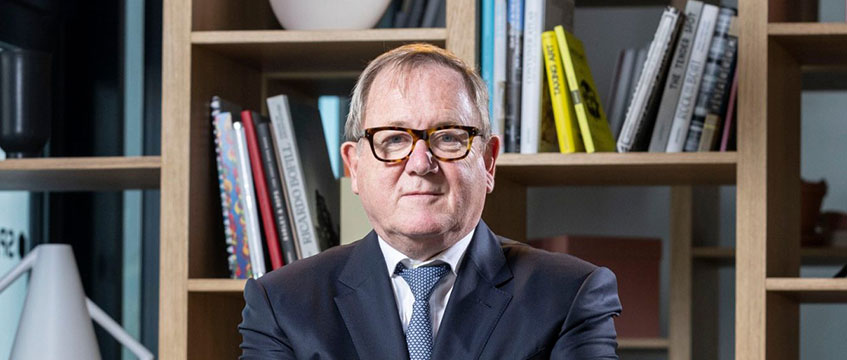John Forrester is a happy man. One week on from UGL clinching the A$1.2bn (£675m) sale of DTZ to private equity suitors, the property services firm’s head of EMEA is looking to the future. Straight from a webchat in which any member of UK staff could question management anonymously and expect an immediate response, he fielded another question: what was the mood following the purchase by TPG Capital, PAG Asia Capital and Ontario Teachers Pension Plan?
Says the perennially upbeat Forrester: “There was no negativity of any kind in the questions that were asked. A lot of people were seeking details about strategy, about the portfolio of other companies that are owned by our investors. But it was mostly just optimism and curiosity.”
How do you feel after months, if not years, of uncertainty?
I wouldn’t recognise the term uncertainty because I’ve always been pretty certain of the direction of the organisation. But it’s helpful to be moving to an organisation whose focus will be solely on property, and to work with a team that includes [former CBRE chief executive]Brett White.
In relation to the demerger moving to a sales process, when did things change?
There was no epochal moment. The demerger was a planned process so that we could evolve into a single organisation under our own P&L and stock market listing. But as the interest of private equity grew – because the prospects for the industry and the markets grew globally – I think it’s only fair that UGL had to consider whether from a shareholder and DTZ perspective that PE was the best route.
We in management weren’t focused on how we were capitalised, we were focused on the availability of capital to take advantage of market growth.
How have you held on to people amid what must have been an unsettled period?
The key question is: is your business in a position to compete more strongly tomorrow than yesterday? People want to be in an organisation that can and does compete. They felt that through the DTZ evolution they could still go out and do great work and win. I didn’t do that – it was the environment. All I try and do if given the opportunity to turn right or turn left is to take the path that maintains your ability to compete.
Do you have qualms about the future under private equity ownership? Do you see LSH’s and GVA’s experience as a cautionary tale?
No. One private equity company is very different from another. Some are passive and some are active. When you buy an organisation, and the maturity of that organisation, are critical. All these things show me that you can’t generalise.
For DTZ to go private for a while is very healthy. To have access to capital that believes, as we do, that the market is in an upswing is helpful.
I don’t believe that the way private equity acts as a manager or owner is different from any other cost-and-return structure, whether it’s UK quoted, US quoted or privately owned by an entity seeking strong returns.
Any views on the consortium’s hold period or exit strategy?
No, that is for the TPG ?consortium to answer.
Expansion and M&A activity in the US are expected soon. What are we likely to see?
The US is where we need to grow. There are organisations which we’ve always thought might be able to help us build out that platform.
Like Cushman & Wakefield?
If I had a pound for every C&W/DTZ rumour, I would have left real estate by now. There are many ways DTZ can build out its platform, and I think it would be for TPG to rule in or rule out any type or scale of target.
What is the most important lesson you have taken from your time of corporate change?
Easy: never stop focusing on the client. If anyone in DTZ had allowed themselves to take their mind off that, we would have had a less positive outcome over the past five or six years.
Any decisions you would have made differently?
If the organisation hadn’t taken certain decisions – which people may not feel were the right ones – we would not be where are today. Had all our decisions been brilliant we might not have the size and scale of our global business today with A$2bn (£1.1bn) of revenue. We did our very best for all parties and all stakeholders every day all the way through.
Capital markets growth to continue
Paul Boursican, DTZ’s head of capital markets, EMEA, talks about the leadership team’s response to the deal and future growth.
“If the deal brings even more growth power, that is great. My guys are more focused on market share than on corporate ownership. However, we didn’t wait until this recent deal to grow – we have recruited 42 investment professionals, mostly from our competitors – in the 14 months since I joined, taking us to 230 across Europe. We continue to have an aggressive recruitment plan and want to continue to expand our market share of asset sales of more than €100m.
“We’ve got an organic growth appetite in Germany under our new country head, Yvo Postleb. But the question is, where do we grow fastest?”
Forrester says: “We can grow in Europe without any large-scale M&A. We are underscale in the principal markets in Germany – we could be wider and deeper there – and we have an expanding business in Paris but there is still headroom to grow organically.”
Boursican adds: “We have an exceptional [capital markets] business in Asia in Europe – we have the buyers and the clients. All the major Chinese and Asian investors want to invest in London. That’s fine, but it’s in New York and the US where we need to grow.”
bridget.oconnell@estatesgazette.com











